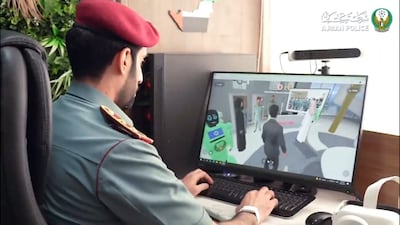The metaverse is projected to contribute about $15 billion to GCC economies annually by 2030, led by Saudi Arabia and the UAE, as governments continue to introduce measures to tap into the potential of the emerging technology, a study from Strategy& showed.
The kingdom is expected to account for more than half of the figure, or $7.6 billion, while the Emirates stands to receive almost a quarter, or $3.3 billion, reflecting the aggressive programmes the Arab world's two biggest economies have in place to leverage the metaverse, Strategy&, a subsidiary of global consultancy PwC, said in a statement on Wednesday.
Qatar is next with $1.6 billion, followed by Kuwait ($1 billion), Oman ($800 million) and Bahrain ($400 million).
The travel and tourism industry is seen benefiting the most, with an estimated $3.2 billion economic gain each year, the study said.
“The metaverse holds a world of possibilities that extends beyond next-generation gaming and internet-based home buying or shopping. It will change how we work, transact, plan, design, build, shop, recreate, travel and live,” Dany Karam, a partner at Strategy& Middle East, said.
The metaverse is the virtual space where people, represented by avatars or three-dimensional representations, can interact. It is also poised to reshape workplaces and businesses by using new techniques to streamline operations.
The technology is seen as an economic opportunity worth between $8 trillion and $13 trillion, heavily dependent on how much companies are willing to invest in the emerging innovation, PwC has earlier said.
Saudi Arabia, the Arab world's biggest economy, is in the middle of a major economic diversification drive under its Vision 2030 agenda, with technology a key pillar to attract investments and create jobs.
Neom, the kingdom's $500 billion high-tech city on the Red Sea, is using the metaverse to provide information on construction operations. A metaverse for Neom has also been created to allow people to simultaneously experience the city in both the real and virtual worlds.
The UAE, meanwhile, has taken a number of steps to integrate the metaverse and its related technology, including cryptocurrencies, into the economy, government and society.
In July, Dubai unveiled its Dubai Metaverse Strategy, which aims to create 40,000 jobs and add $4 billion to the emirate's economy.
In May, the emirate's Virtual Assets Regulatory Authority also established its Metaverse HQ, making it the first regulator to have a presence there.
The government also announced a new economic output metric — “gross metaverse product” — at the inaugural Dubai Metaverse Assembly in September.
While activities to harness the metaverse are in full swing in the GCC, Strategy& has cautioned that regulators should take the right steps, including building robust digital infrastructure, responsibly handling user data and ensuring the technology's security and reliability.
The study's projections assessed growth in the component technologies, platforms, hardware and software, “as well as the economic contribution of new metaverse applications, such as content creation, shopping and so on”, said Tony Karam, a partner at Strategy& Middle East.









